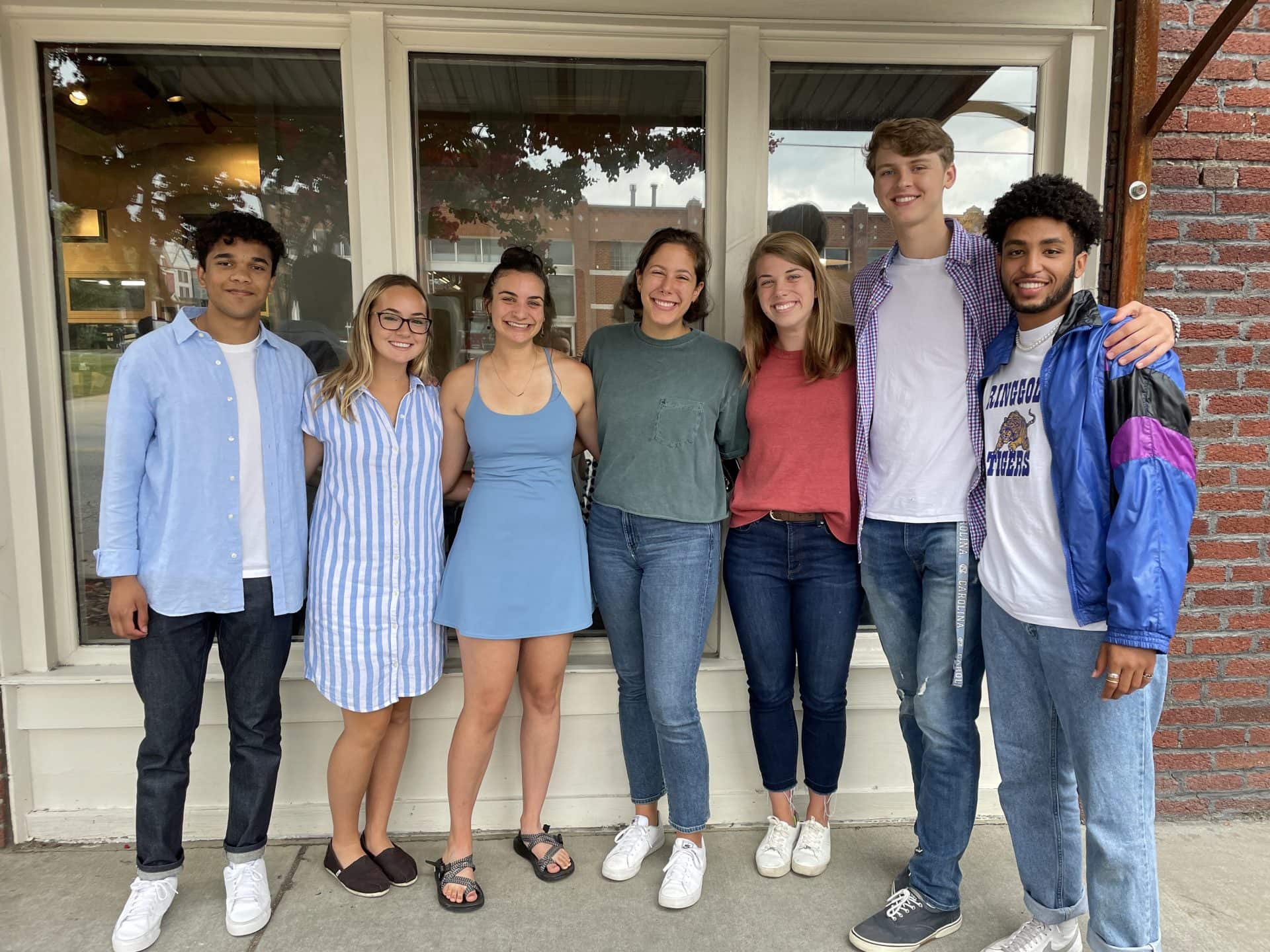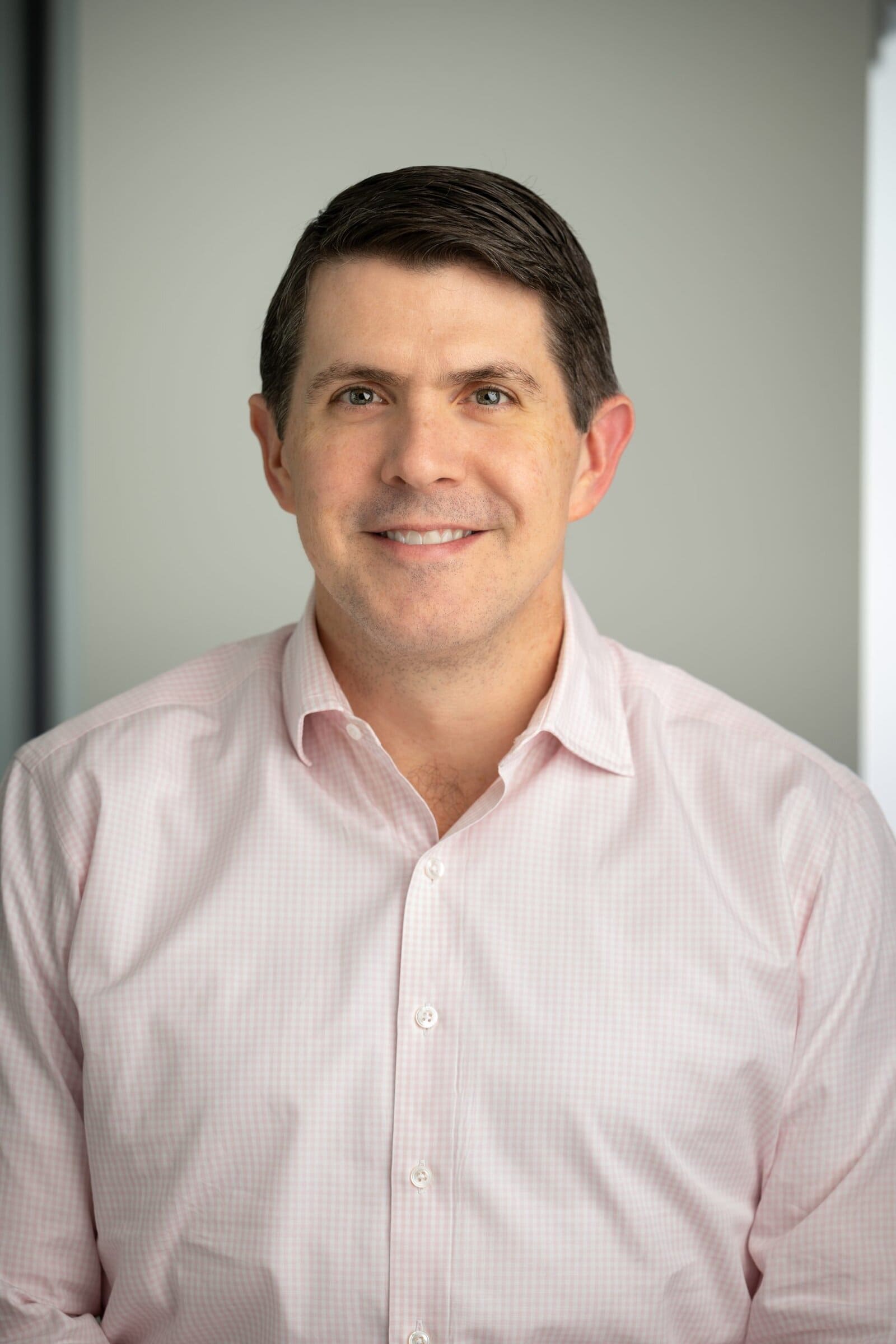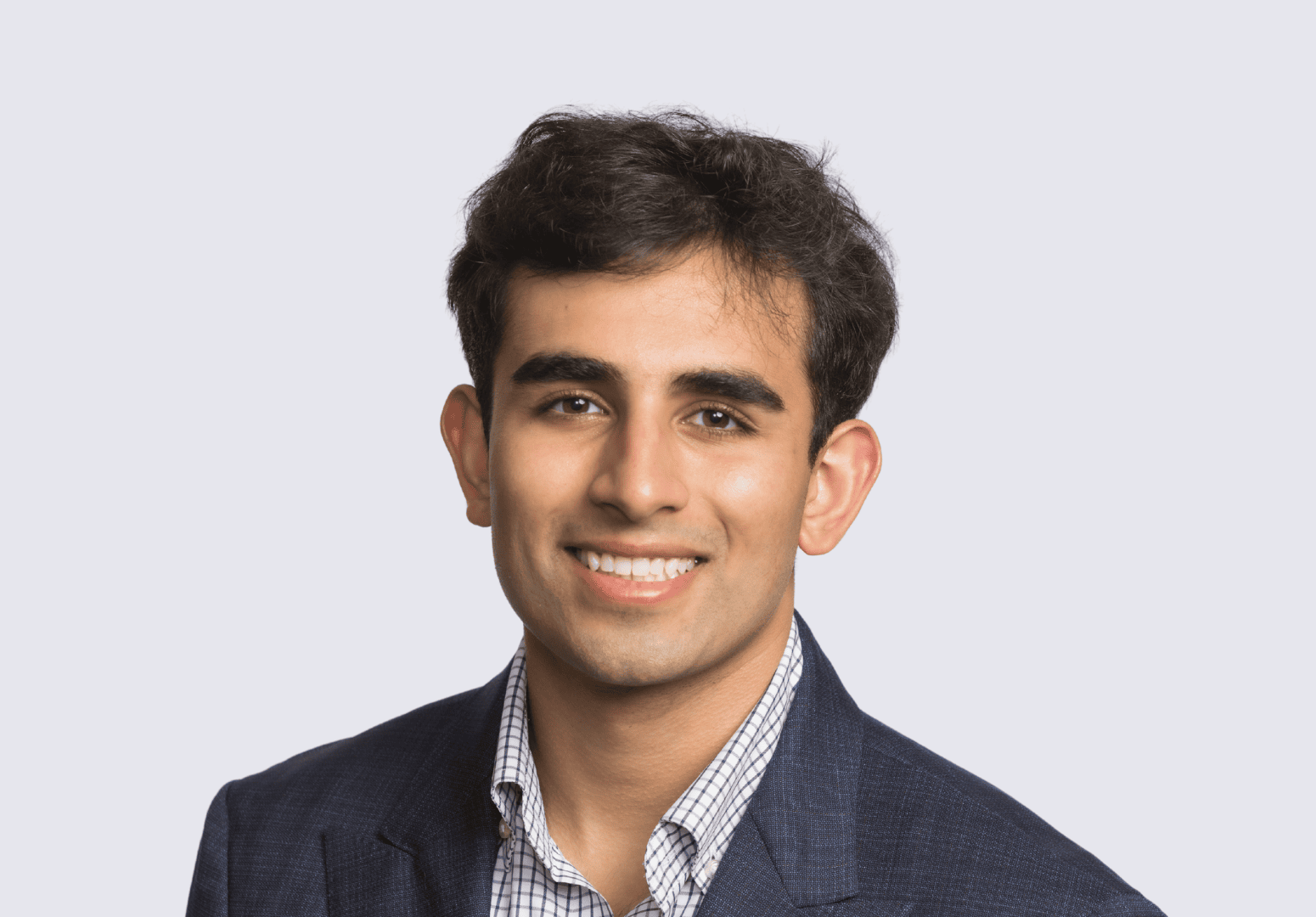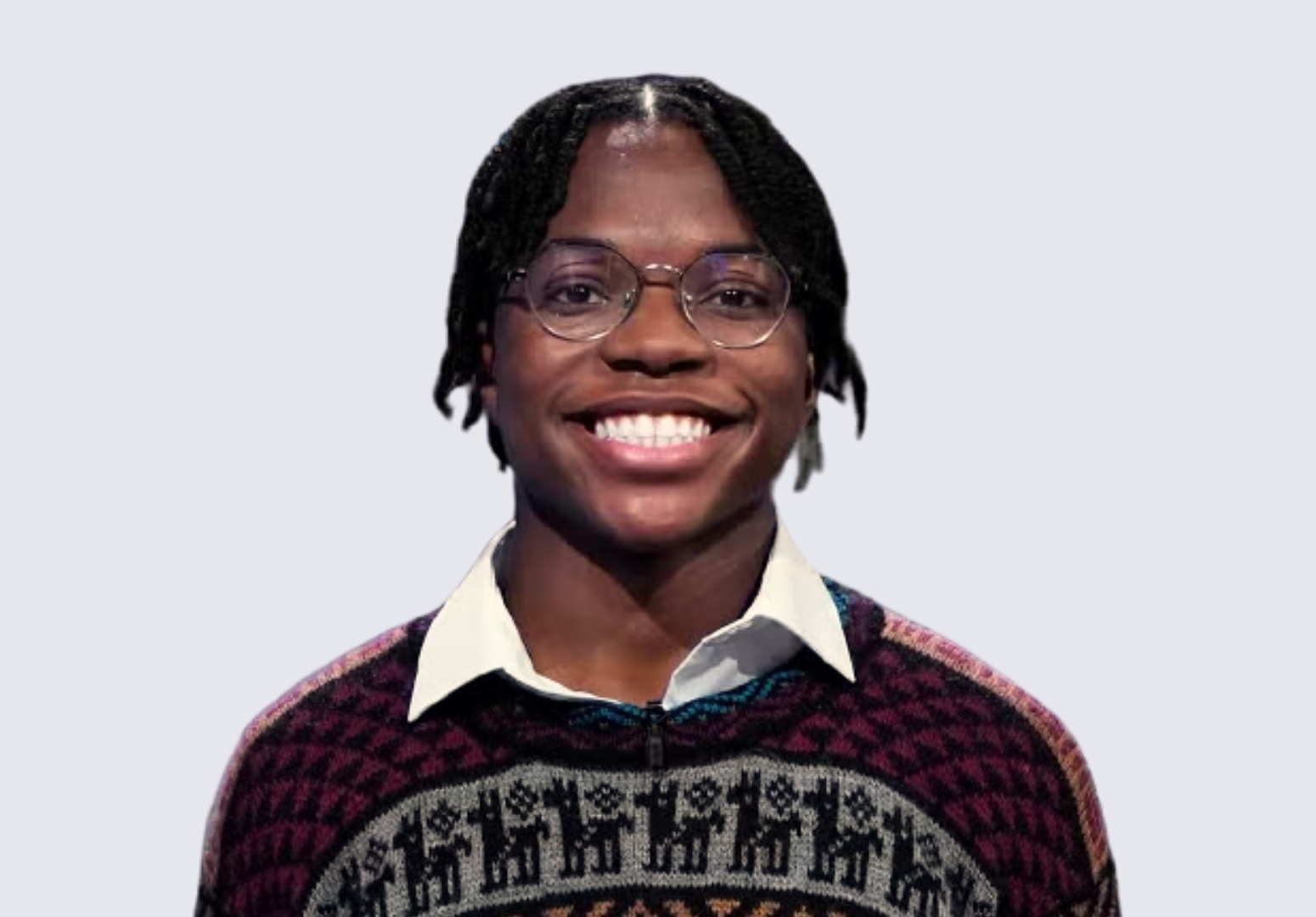
2021 Chattanooga Civic Collaboration Team: Matthew Deo ’24, Nina Fisher ’24, Siena Rodrigues ’25 (visiting the team), Molly Dorgan ’24, Emily Schmidt ’24, and Eliam Mussie ’24.
Catalyze is joined by Geoff Milliner, the COO of the Chattanooga Enterprise Center and a 2021 Civic Collaboration host for Morehead-Cain, and Montez Thomas, assistant director of scholar advising at Morehead-Cain. This episode is the second in a two-part series on the Civic Collaboration program.
The Enterprise Center tasked their team of Morehead-Cain Scholars to explore the impact of “smart city” investments and technologies on quality of life, as well as the intersection of those investments and technologies with social determinants of health. The center is a nonprofit devoted to establishing Chattanooga as a hub of innovation and entrepreneurship.
More than a dozen teams of scholars participated in this year’s Civic Collaboration program. Rising second-year scholars investigated their designated communities’ challenges and opportunities and proposed meaningful solutions.
Learn more about the 2021 Civic Collaboration program.
Becoming a Civic Collaboration host for Morehead-Cain
Hosts propose a problem or issue for scholars to address together, provide guidance and mentorship, and share information and resources pertinent to the projects. The Morehead-Cain Scholarship provides each scholar with a cost-of-living stipend and transportation to and from the host city (hosts are not expected to provide financial assistance to scholars).
To learn more about partnering with Morehead-Cain for future Civic Collaboration projects, contact Montez Thomas or visit our website.
Music Credits
This episode features songs by Scott Hallyburton ’22, guitarist of the band South of the Soul, and Nicholas Byrne ’19 of Arts + Crafts.
How to listen
On your mobile device, you can listen and subscribe to Catalyze on Apple Podcasts or Spotify. For any other podcast app, you can find the show using our RSS feed.
Catalyze is hosted and produced by Sarah O’Carroll for the Morehead-Cain Foundation, home of the first merit scholarship program in the United States and located at the University of North Carolina at Chapel Hill. You can let us know what you thought of the episode by finding us on Twitter or Instagram at @moreheadcain or you can email us at communications@moreheadcain.org.
Episode Transcription
(Sarah)
Geoff and Montez, thank you both for joining us today.
(Geoff)
Thank you so much for having me.
(Sarah)
Geoff, so that our listeners can get to know who you are and what you do, will you share with us a bit about the Chattanooga Enterprise Center?
(Geoff)
The Enterprise Center unites people, organizations, and technology to build an advanced and inclusive future for our community here in Chattanooga and Hamilton County and, increasingly, our region.
We’re really focused on economic development and technology-influenced, focused, supported economic development for the 21st century in a way that really builds, we hope, economic mobility within our community.
(Sarah)
Before we get into the project that this team of scholars worked on, I’d like to ask you, Montez, if you could share about what “dilemmas” are exactly and perhaps give a few examples from this past summer.
(Montez)
So, when we partner with either nonprofits or government agencies for the Civic Collaboration process, we ask them to think of an emerging dilemma that is going on in their particular city or in an area of the city so that the scholars can really focus their efforts on something that is a hot topic, hot-button issue within the city that may have parties from various entities working towards finding solutions but it’s also something that is not so far along and everything that it’s so deeply rooted where they wouldn’t be able to feel like they can make some adequate process over the course of eight weeks.
We had fourteen scholar teams across thirteen cities throughout the country this past summer. This was our first time having an entire class of scholars taking part in the Civic Collaboration program, which was really exciting for us.
Scholars centered their work on a variety of topics this summer, from investigating effective means to affordable housing to researching environmental sustainability and agriculture and considering ideal locations for electric vehicle charging stations and many, many more.
Our connection with the Enterprise Center dates back to 2016, when Macon Toledano ’86 informed us of the great work the center is doing in Chattanooga, and it’s been a great partnership for us thus far.
(Sarah)
Thanks, Montez. And going back to you, Geoff, can you share about how you landed on this scholar team’s dilemma and what you hoped they might accomplish?
(Geoff)
We landed on this smart city space because it is something that we are struggling with in some ways, even as we move forward in others, and particularly linking smart cities to the ideas of equity, of public health, of what it means for a resident in our community to live in a smart city. And something that we’re spending a lot of time thinking about, researching, iterating and testing new technologies and projects, is where do those things intersect? And it felt like a perfect place to bring, as I said, this enthusiastic outside perspective on work that we’ve been nose-down in for quite a while.
(Sarah)
And for anyone who might not be familiar with smart cities, can you unpack that concept for us? And to what extent would you rate Chadtanooga as a smart city?
(Geoff)
Well, I’ll do you one better, and I’ll give you the definition that our scholars came up with, which ended up being actually a pretty integral part of their project. What is a smart city? “Our smart city and smart community is guided by data and technology. It adapts to meet our changing needs, increases equitable access, and works to transform Chattanooga into a more efficient, responsive, and sustainable place for all.”
And I love that definition that they came up with. As they tackled this dilemma, one of the things that they realized was there wasn’t common language in this space. As they met partners across sectors with different degrees of interest or experience in this smart city space, as they met with residents and neighbors, recognizing that we needed to be speaking the same language was a huge insight.
As far as where Chattanooga rates, I think that’s also what makes Chattanooga such an interesting and exciting place for students like these scholars to work, because we are on the cutting edge of so many of these technologies because of the infrastructure that EPB has put in place, because of the work that the University of Tennessee at Chattanooga and the Center for Urban Informatics and Progress has been doing, because of the work that our city and county themselves have been doing, things are happening here that might not happen elsewhere for years and years.
So this is a chance to help develop a model that can have an impact for other communities, not just Chattanooga, but well outside our borders. And when we bake equity, inclusion, quality of life into that model, that also gets replicated. And that’s huge. So I think Chattanooga is doing well. But as our scholars were able to explore and demonstrate, there is still lots and lots of work to do in an emerging space.
(Sarah)
And in talking about smart cities, it seems like there’s a lot of different angles the scholars could take. So how did you coach the team to effectively address these complex issues? Tell us a bit about that dynamic.
(Geoff)
Yeah, of course. And maybe in talking to our team, they may have wanted a little bit more coaching. I told you about why we get excited about having them here. We wanted to know what they would bring to this project. They had interests ranging from journalism to public health to entrepreneurship. These are incredibly important perspectives looking at issues like what makes a smart city? How can it be more equitable? Because it’s also a fundamentally cross-cutting systems and infrastructural element to our community, trying to provide guideposts, trying to provide kind of access to not just the Enterprise Center’s perspective, but we literally sent out email introductions to hundreds of different community partners before they arrived, letting them know that they would be here so that they would be able to determine some of those guideposts for themselves.
In terms of the dynamic, we made sure we had meetings to start the week and end the week, made sure that they never got stuck, that if they were having trouble getting in touch with someone or running up against something, we could be there as a support. But we didn’t want to be prescriptive in how this work turned out because we were truly, honestly interested in what our scholars brought to it.
(Sarah)
And I imagine that a lot of teams face this problem where because it’s a complicated issue, there’s still this desire to have concrete deliverables and to fix it. But with this sort of work, there probably isn’t always this satisfying sense of closure. But what can you share about what they did learn and discover? And is the center planning to incorporate any of their findings?
(Geoff)
Yeah, well, absolutely. We are planning on integrating and have already begun integrating their findings into how we approach this. I mentioned briefly this idea of shared language. About midway through the experience, we had a meeting in which I think maybe they were a little worried about saying, “Hey, we’re not sure everybody is on the same page here.” And to me, that was an incredible insight. One, that as we dealt with the pandemic and so many other things, maybe we weren’t paying quite enough attention to, as we were thinking about these next steps, where could we take this?
Making sure that everyone came along with us and had a voice and could speak with agency was incredibly important. And so what the students put together to start is this smart city citizens guide—a way to access the language, the projects, the work that’s ongoing in a really accessible way. In addition to pulling together that guide, suggestions about ways to make sure that folks outside of the circles where these conversations are happening could then access it.
I think the other thing that ends up being, and certainly part of a group as active as our scholars were this summer, and as deeply integrated into the community as they made themselves, is that in having these conversations in the process of learning about it, they brought new partners to the table. They broke down barriers around this issue that have made subsequent conversations, next-step projects, the kind of systemic work that requires these multi-stakeholder, citizen-led coalitions come together, by virtue of being those incredibly brilliant, enthusiastic, passionate students going out and trying to answer these questions.
So, absolutely. The amount of energy they brought to the topic has paved the way for so much that I’m working on right now.
(Sarah)
Well, you’ve been very kind, but I think the success of the team was also in part to your investment in them. So we’re really grateful for the time you dedicated to supporting them on this work. Montez, can you share from the programmatic side, just how much time and resources we usually ask of Civic Collaboration hosts and any other considerations they might want to have in mind before becoming a partner of Morehead-Cain?
(Montez)
Sure. One one of the goals of the program is to build scholars’ capacity to wrestle with challenging and ambiguous topics that do not always have clear solutions. And, as you both have stated, we stress with scholars that many of the factors behind these dilemmas were in place before scholars arrived, and they should not expect to fix these challenges in their eight weeks, but rather make a positive impact on them.
The primary thing that we ask from our hosts is to help the scholars understand the complexity of these dilemmas. And as Geoff has highlighted when he said about emailing out to various city partners, that’s what we ask for our hosts to do, is to make various constituents aware that, “Hey, this group of UNC students is going to be here this summer. If they call on you, please open your door and welcome them in and hear them out regarding the work that they’re trying to do here.” And that’s a big piece of it.
Another piece is meeting with the teams at least once a week, and that looks differently for all hosts. We ask for at least one hour of their time each week, and in many cases, hosts will spend upwards to four or more hours with scholars each week. And so it just really varies based on the host’s availability as well as the scope of the challenge that the scholars are working towards and that relationship. Otherwise, we also ask for, in pre-COVID times, we asked for hosts to provide maybe some working space, a conference room, or suggest to us like coworking space, where we can have scholars we can pay for as a Foundation to have them in a coworking space so that they can have a centralized location.
Last year, obviously with COVID going on, we didn’t ask of that space from our hosts, but some of them still were able to provide a great space for scholars to work so they could have access to city officials as well as the team members of the host organization.
(Sarah)
And from Morehead-Cain’s side as well, each team also undergoes some training sessions before heading out on these projects. Can you share, Montez, about what goes into preparing the scholars for the summer?
(Montez)
Yes, our training is multifaceted. We have a piece looking at diversity, equity, and inclusion. We partner with the Racial Equity Institute out of Greensboro, North Carolina, and they help lead some very impactful training so that scholars can understand when they go into these various communities. Many of the challenges and the things that they see on the surface, there are often other factors that are more underground, and actually the training that they go through is called “Groundwater” that has led to some of the inequities and some of the challenges that they see and they face while they’re on site on their locations.
So we have the Racial Equity Institute training. We also have some project management and team working training that we usually lead the scholars through, as well as some team-building exercises because many of these scholars are being placed on teams with people that they came into Carolina with, but they aren’t necessarily best of friends. And so we want them to have an opportunity to connect with one another and get to know one another and also have an understanding to where while they’re working and, in many cases, living together over the course of the summer, they’re able to work out any group dynamic challenges that may arise.
And so those are the primary ways that we work on the Foundation side. And then throughout the summer, we have the scholars submit biweekly reports to us, individually, to let us know how they’re doing and if there are any challenges that we need to be aware of as well as we will do a group meeting check-in midway through the summer where we connect with the scholars as a team, hear about some of the highs and lows, hear about their experience working with the host, and if necessary, we’ll follow up with the host as well to get some additional information to see how we can be supportive from Chapel Hill in making sure that scholars have what they need to do quality work and produce something of substance for our host.
(Sarah)
Thanks, Montez. Geoff, we’re getting close to our time, but from the perspective of a host, do you have any ideas for what we could bring to future iterations of the program? Other types of training that could be useful for scholars before working with organizations like yours?
(Geoff)
I think storytelling is so, so important and the ability to take these really complex issues and translate them to audiences who may not otherwise be engaged. And I have absolutely no complaints or reservations about the scholars that we have worked with this year or in the past. But I do think it’s an important skill and one that from a nonprofit perspective, we so often are overwhelmed and moving on to the next thing. We don’t have as much time to tell the stories. Our scholars this summer did a great job teasing out some of those stories, and it’s something that I would encourage for other groups to think about.
And then if I can go off book for just a second to say that I don’t know that this is necessarily something you can teach, but maybe speaks to the caliber of student selected to be a Morehead-Cain Scholar and, frankly, the caliber of human being. Our team of six, we did a little interview with them at the beginning of the summer and asked them what they were looking forward to about Chattanooga and interested in. And as you read it, it’s a good little tourism piece about Rock City and Ruby Falls and all the classic Chattanooga destinations.
By the end of the summer, hearing the stories about how they were playing soccer with neighborhood kids, that they had favorite restaurants, that they were running out of trails to check out, truly the way that they embedded themselves made Chattanooga their home. I still get asked how they’re doing by some of the folks that they had hour-long meetings with. They made such an impression on the city. I hope they know this place is always home to them. And again, I think just speaks to the quality of this Program.
(Sarah)
That’s great to hear. Montez, do you have anything to share before we close out?
(Montez)
I just want to extend thanks on behalf of the Foundation to Geoff and the Enterprise Center in Chattanooga, as well as our other thirteen Civic Collaboration partner hosts who partnered with us for this 2021 season.
It was the biggest undertaking of Civic Collaboration that we’ve had to date, and we’re so thankful for all the wonderful partners who have made it an outstanding experience for scholars and the great work that scholars did in this process as well.
And just wanted to highlight Geoff specifically. Geoff went above and beyond the call of duty and even created an event where he invited local Morehead-Cain alumni to come for a time to meet with the scholars and to engage. And I don’t know, if we have a moment if Geoff, you could speak to that briefly about just what that was about and your thinking behind that.
(Geoff)
Of course. Thank you. I don’t know about above and beyond. This was a true pleasure.
We work very closely around this experience. And you mentioned Macon Toledano ’86 and the Lyndhurst Foundation in Chattanooga. Chattanooga has a long history with the Morehead Scholarship, as well as now the Morehead-Cain Scholarship. We have generations of graduates who are still in town, and obviously we’re bringing students in to help us with a challenge. But we want this to be part of how their careers are launched.
I’ll say for me, no one ever told me that working in certainly your hometown, but even at the city level could be such an exciting and rewarding career, offering as many opportunities for our students to learn these things, to talk to folks from well outside of the project who have led incredibly interesting lives, do amazing work. That was a huge part of what we think our role as a host is. We want them to feel at home. We want this to be an incredibly valuable experience for them. In addition to the incredible impact that it has for organizations like ours.
(Sarah)
Geoff and Montez, thank you both so much.
(Geoff)
Absolute pleasure.
(Montez)
Thanks so much, Sarah.


